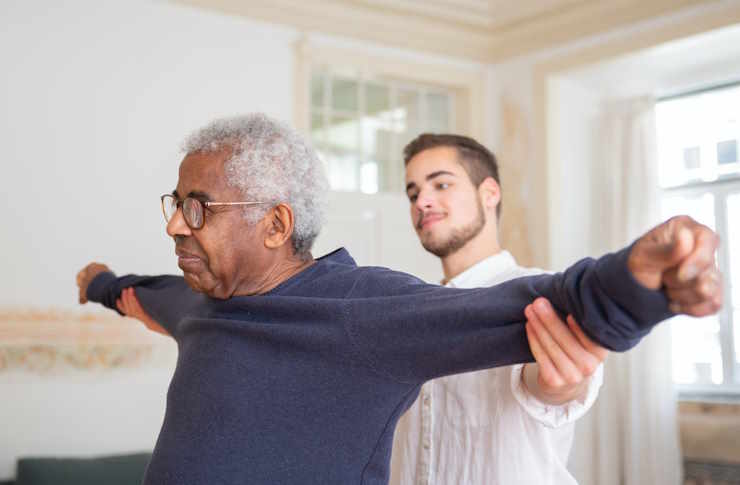Home Care Services for Older Adults in India
Home care services in India offer a safe and supportive environment for older adults who prefer to remain in their homes. With help ranging from daily assistance to wellness monitoring, these services promote comfort and dignity while meeting changing personal needs.

What Are the Benefits of Home Care for Seniors?
Home care provides numerous advantages for older adults compared to institutional care. The primary benefit is maintaining independence while receiving necessary support. Seniors can continue their daily routines, keep personal belongings nearby, and enjoy the emotional comfort of familiar surroundings. Studies indicate that older adults recover faster from illnesses and maintain better mental health when cared for at home.
Home care also offers personalized attention, as caregivers focus solely on one individual rather than managing multiple residents. This one-on-one care ensures that specific needs, preferences, and medical requirements receive proper attention. Additionally, family members can remain actively involved in their loved one’s care, strengthening emotional bonds and providing peace of mind.
What Types of In-Home Assistance Are Available?
Professional home care services in India encompass a wide range of support options tailored to individual needs. Personal care assistance includes help with bathing, dressing, grooming, and mobility support. Medication management ensures proper dosing and timing of prescribed treatments, while meal preparation focuses on nutritious options suitable for dietary restrictions.
Companionship services address social and emotional needs through conversation, recreational activities, and emotional support. Medical care includes nursing services, physical therapy, wound care, and health monitoring. Household assistance covers light cleaning, laundry, grocery shopping, and transportation to medical appointments. Specialized care is available for conditions like dementia, Alzheimer’s disease, or post-surgical recovery.
How Does Home Care Support Independence?
Home care empowers seniors to maintain control over their daily lives while receiving necessary assistance. Rather than taking over completely, professional caregivers encourage self-reliance and support existing abilities. This approach helps preserve dignity, confidence, and mental sharpness that can decline when seniors feel helpless or overly dependent.
Caregivers adapt their support level based on individual capabilities, gradually increasing assistance only when needed. This flexible approach allows seniors to participate in decision-making about their care, maintain social connections within their community, and continue pursuing hobbies and interests. The familiar environment also reduces confusion and anxiety often experienced in institutional settings.
How to Choose Reliable Home Care Services?
Selecting appropriate home care requires careful evaluation of several factors. Begin by assessing specific needs, including medical requirements, personal care assistance, and companionship preferences. Research potential providers, checking credentials, licenses, insurance coverage, and background verification processes for caregivers.
Interview prospective agencies to understand their screening procedures, training programs, and supervision methods. Request references from current clients and verify caregiver qualifications. Ensure the provider offers flexible scheduling, emergency support, and regular care plan reviews. Clear communication about costs, services included, and cancellation policies prevents misunderstandings later.
Unique Aspects of Home Care in India
India’s home care industry has experienced significant growth due to changing family structures and increased awareness of senior care options. Traditional joint family systems are evolving, with more adult children living in different cities for career opportunities. This demographic shift has created demand for professional home care services that complement family support rather than replace it.
Many Indian home care providers incorporate cultural sensitivity into their services, understanding dietary preferences, religious practices, and language preferences. Ayurvedic and traditional wellness practices are often integrated with modern medical care. The industry also addresses the unique challenge of affordability, with many providers offering flexible payment options and scaled service packages to accommodate different economic backgrounds.
Cost Considerations and Provider Options
Home care costs in India vary significantly based on location, services required, and caregiver qualifications. Urban areas typically have higher rates than rural regions. Basic companionship services may start from ₹8,000-₹15,000 per month, while skilled nursing care can range from ₹20,000-₹50,000 monthly. Live-in care arrangements typically cost ₹25,000-₹60,000 per month depending on the level of medical care required.
| Service Type | Provider Examples | Monthly Cost Range |
|---|---|---|
| Basic Companionship | Nightingales, Emoha | ₹8,000 - ₹15,000 |
| Personal Care | Portea, Tribeca Care | ₹15,000 - ₹30,000 |
| Skilled Nursing | Apollo HomeHealth, Manipal Health | ₹25,000 - ₹50,000 |
| Live-in Care | Elder Care India, Home Care Services | ₹30,000 - ₹60,000 |
Prices, rates, or cost estimates mentioned in this article are based on the latest available information but may change over time. Independent research is advised before making financial decisions.
Home care services represent a valuable option for older adults in India who prioritize independence, comfort, and personalized attention. With proper research and planning, families can find reliable providers that meet their specific needs while ensuring their loved ones receive quality care in familiar surroundings. The growing availability of professional home care services makes it increasingly possible for seniors to age gracefully at home with appropriate support and assistance.
This article is for informational purposes only and should not be considered medical advice. Please consult a qualified healthcare professional for personalized guidance and treatment.




